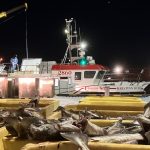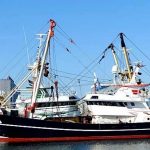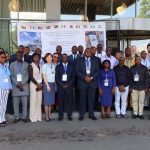It is informed that the Department of Agriculture for Congress to approve an archipelagic baselines law, for fear of losing access to parts of the country’s existing fishing grounds. The tuna industry stakeholders are in full support to the Congress decision for baselines law. Bayani B. Fredeluces, executive director of the Socsksargen Federation of Fishing and Allied Industries, Inc., pointed out that the group will form a special committee that will lobby for the passage of a baselines law.
Fredeluces also states that in the past two tuna congresses here, we have been lobbying the government to delineate the country’s water territorial boundaries. He added that it is necessary to settle this otherwise the fishing grounds may become international waters and anybody can just fish on it. He warned that this will be a big disadvantage to our [commercial and small fishermen] since anybody can just step in.
Fredeluces also pointed out that, without a baselines law, what should have belonged to the Philippines may be awarded by international adjudicating bodies to neighboring states in case of a formal dispute settlement procedure. Agriculture Secretary Arthur C. Yap have urged Congress anew to formalize the country’s 200-mile exclusive economic zone (EEZ) and the extended continental shelf (ECS, which can extend farther than the EEZ), as the deadline to do so that has been set by the United Nations is due to lapse by May next year.
Yap expressed that an amendatory law is needed because the Philippines’ existing baselines, as defined by Republic Act 3046 (An Act to Define the Baselines of the Territorial Sea of the Philippines) and amended by RA 5446, are not in accordance with UNCLOS. He informed that his department’s Bureau of Fisheries and Aquatic Resources is spearheading efforts for the country not only to beat the UN deadline but also that the base-lines definition will hopefully result in expansion of the country’s fishing grounds.








